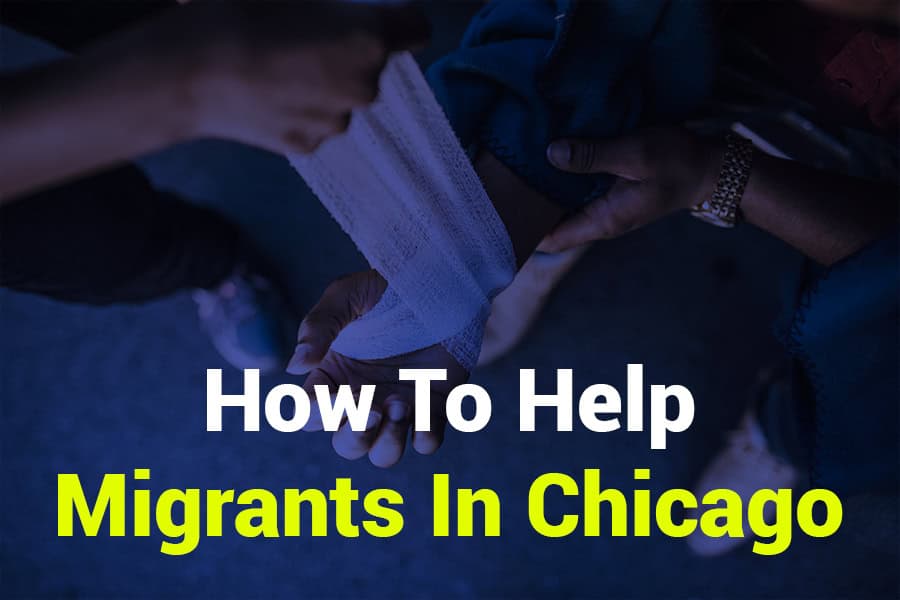Migrants in Chicago face numerous challenges, from finding housing and employment to navigating complex immigration processes. Given the urgency of the migrant situation, understanding how to help migrants in Chicago is crucial for fostering a supportive community. Whether you want to volunteer, donate, or engage in advocacy, there are many ways to contribute. This article explores effective strategies, resources, and organizations you can connect with to aid migrants, ensuring you make a meaningful impact on their lives.
The Migrant Crisis in Chicago
Due to various socio-economic factors, migrants have been arriving in Chicago significantly, making support systems essential. Many arrive seeking safety, better job opportunities, or reunification with family, but they often face barriers like housing, legal status, and employment. Local communities have played a pivotal role in supporting these individuals, offering immediate aid and long-term resources. Migrants also need access to medical care, language classes, and legal assistance to integrate fully. By understanding the context of their needs, volunteers can tailor their efforts more effectively.
Community members can start by educating themselves about the migrant crisis, including the reasons behind migration, migrants’ rights, and the unique challenges they encounter. Awareness helps ensure that support efforts are informed, respectful, and responsive to migrants’ true needs. It also fosters empathy, creating a more welcoming environment for migrants.
In Chicago, several organizations focus on migrant support, offering everything from legal aid to job training. Participating in these initiatives amplifies their reach and impact, making it possible to address more migrant needs in less time. Individuals seeking help can start by contacting local shelters, community centers, and advocacy groups. By doing so, they join a larger movement of people working to make Chicago a more inclusive and supportive city.
Ways to Volunteer to Help Migrants in Chicago
Volunteering at Shelters
Local shelters often face resource constraints as they provide temporary housing to migrants. Volunteers can assist with meal preparation, distributing clothes, and offering moral support.
Language Assistance Programs
Language barriers are among the biggest challenges for migrants. Volunteering to teach English or offer translation services can make a significant impact.
Job Training and Placement
Many migrants need help finding stable employment. Volunteers can provide resume writing assistance, interview coaching, and job placement support.
Educational Support for Children
Migrant children may face difficulties adapting to the school system. Volunteers can offer tutoring, mentorship, and homework help to ensure they don’t fall behind academically.
Legal Aid and Advocacy
Navigating legal processes can be daunting for migrants. Volunteering with legal aid organizations to offer guidance and support can help them secure proper documentation and better understand their rights.
How to Donate to Migrants in Chicago?
- Clothing and Personal Hygiene Items: Migrants often arrive with few possessions. Donating gently used clothing, shoes, and personal hygiene products can be incredibly helpful.
- Monetary Donations: Financial support is critical for non-profits that help migrants. Donations can fund shelters, legal services, medical care, and more.
- Books and Educational Supplies: Many migrants, especially children, benefit from educational materials to help with language learning and school adaptation.
- Food and Meal Supplies: Donating non-perishable foods to local food banks or meal programs can help ensure that migrants have access to basic nutrition.
- Housing Supplies: Items like bedding, towels, and kitchen utensils can help migrants set up more stable living conditions when they find permanent housing.
Advocacy for Migrant Rights in Chicago?
Advocacy is a powerful way to address the systemic challenges migrants face. It involves pushing for policy changes that make migration processes more humane and accessible. Many migrants in Chicago face legal challenges that can affect their ability to work, live safely, and access services. Advocating for their rights can help build a more inclusive community.
Participating in protests, writing to policymakers, or attending city council meetings are effective ways to advocate for migrant-friendly policies. Advocacy is not just about creating awareness; it also aims to inspire tangible change in legislation and social attitudes. Individuals interested in advocacy should research current laws, understand how they impact migrants, and engage with organizations already fighting for migrant rights.
Local organizations often organize events, rallies, and information sessions to improve migrant policies. Engaging with these groups can amplify your voice and support efforts that benefit migrants in the long run. Successful advocacy often requires collaboration, sustained efforts, and a clear understanding of the issues.
Chicago Organizations Helping Migrants
Heartland Alliance
Heartland Alliance provides comprehensive support to migrants, including housing, legal aid, and employment services.
National Immigrant Justice Center (NIJC)
NIJC focuses on legal representation for migrants, ensuring that they receive fair treatment within the immigration system.
RefugeeOne
RefugeeOne helps migrants with resettlement services, including language classes, employment assistance, and medical care.
The Resurrection Project
This organization offers housing assistance, community development, and educational support to migrants in need.
Catholic Charities of Chicago
Catholic Charities provides a variety of services, including housing, food distribution, and counseling, to migrants and refugees in Chicago.
Conclusion
Helping migrants in Chicago is not just an act of kindness but a commitment to building a more inclusive community. Whether through volunteering, donations, or advocacy, there are numerous ways to make a difference. Understanding the unique challenges that migrants face and connecting with local organizations can create lasting positive change.
FAQ’s
Q. What is the best way to help migrants in Chicago?
A. Volunteering, donating, or engaging in advocacy is the best way. You can also support local organizations that provide direct services to migrants.
Q. Can I donate clothes to help migrants in Chicago?
A. Yes, many organizations accept clothing donations to help migrants in need. Ensure the clothes are in good condition.
Q. How can I advocate for migrant rights in Chicago?
A. You can join local advocacy groups, attend rallies, and write to policymakers to push for more migrant-friendly policies.
Q. Where can I volunteer to help migrants in Chicago?
A. Local shelters, community centers, and organizations like RefugeeOne, NIJC, and Heartland Alliance welcome volunteers.

